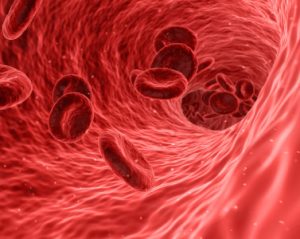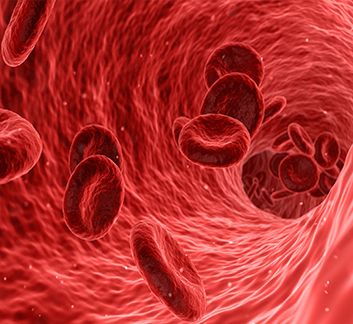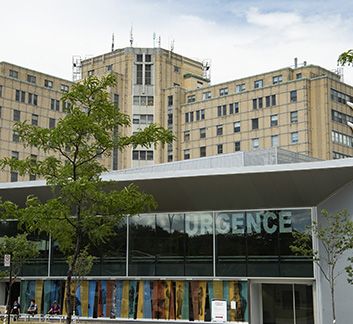Cellular therapy: research advances at Hôpital Maisonneuve-Rosemont
29 September 2020

Immunotherapy involves using the patient’s immune system to specifically destroy tumor cells.
A team from the Hôpital Maisonneuve-Rosemont Research Centre has conducted a study that could improve the effectiveness of cancer immunotherapy treatments. Here’s how.
Immunotherapy: Tomorrow’s medicine
Immunotherapy involves using the patient’s immune system to specifically destroy tumor cells. To date, it has been used to:
- Increase the survival rate of cancer patients;
- Heal patients with advanced cancer or for whom traditional therapies have failed.
This therapy is very promising and embodies the medicine of tomorrow. It is already saving lives today, but there is still a lot of progress to be made to go even further.
˃ Read New Revolutionary blood cancer treatment at the HMR.
˃ Visit the Reprogram History page.
Obstacles remain
Unfortunately, there are several barriers that can hinder the effectiveness of immunotherapy. For example, the tolerance mechanisms of T lymphocytes, which produce a state of immune non-response to an antigen, hinder the effectiveness of this therapy.
T lymphocytes, pillars of the immune system
T lymphocytes, more commonly known as white blood cells, are an important component of our immune system. They protect the body against infection and help control cancer by eliminating infected, abnormal or foreign cells.
Raising T cells
In order to perform their tasks properly, T lymphocytes must be “taught” during their development to learn to tolerate, i.e. not kill, healthy cells in our body.
The importance of separating the wheat from the chaff
Thus, when this tolerance mechanism does not work properly, autoimmune diseases can occur: our immune system attacks its own cells. On the other hand, because cancer cells are initially healthy cells that become malignant, it can sometimes be difficult for T cells to know whether to eliminate these cells or not.
But research is moving forward…
Researchers at Hôpital Maisonneuve-Rosemont Research Centre (CR-HMR) have gained a better understanding of the complexity of the environment in which T lymphocytes develop, as well as their tolerance mechanisms, which, as we have seen, can be an obstacle to cancer immunotherapy.
Dr. Marie-Ève Lebel‘s research is improving our understanding of how these tolerance mechanisms are established in T lymphocytes during their development, allowing us to see if and how these different mechanisms are an obstacle to the elimination of cancer cells.
This allows researchers to know which T cell tolerance mechanisms need to be addressed to improve the efficacy of immunotherapy.
About Dr. Marie-Ève Lebel
 Dr. Marie-Ève Lebel works in the laboratory of Dr. Heather Melichar, researcher at the CR-HMR and associate professor in the Department of Medicine at the Université de Montréal.
Dr. Marie-Ève Lebel works in the laboratory of Dr. Heather Melichar, researcher at the CR-HMR and associate professor in the Department of Medicine at the Université de Montréal.
Her research is being carried out in collaboration with the Lady Davis Institute of McGill University and Harvard University, and will help improve the effectiveness of cellular therapies.
Published in the prestigious journal Nature Communications, the study was led by Dr. Marie-Ève Lebel, Research Associate, Hôpital Maisonneuve-Rosemont Research Centre.
About the Institute of Hemato-oncology and Cellular Therapy
The designation of Institute of Hemato-oncology and Cellular Therapy was awarded to Hôpital Maisonneuve-Rosemont for its cutting-edge expertise and leadership in these fields. The IHOTC optimizes the development and consolidation of cellular therapy, including immunocellular therapy.
It also supports the development of this recognized expertise, both in Canada and internationally, for specialized patient care, higher education, clinical research, basic research and the evaluation of health technologies and intervention methods.
˃ Read Differential expression of tissue-restricted antigens among mTEC is associated with distinct autoreactive T cell fates, Nature Communications, July, 14, 2020









